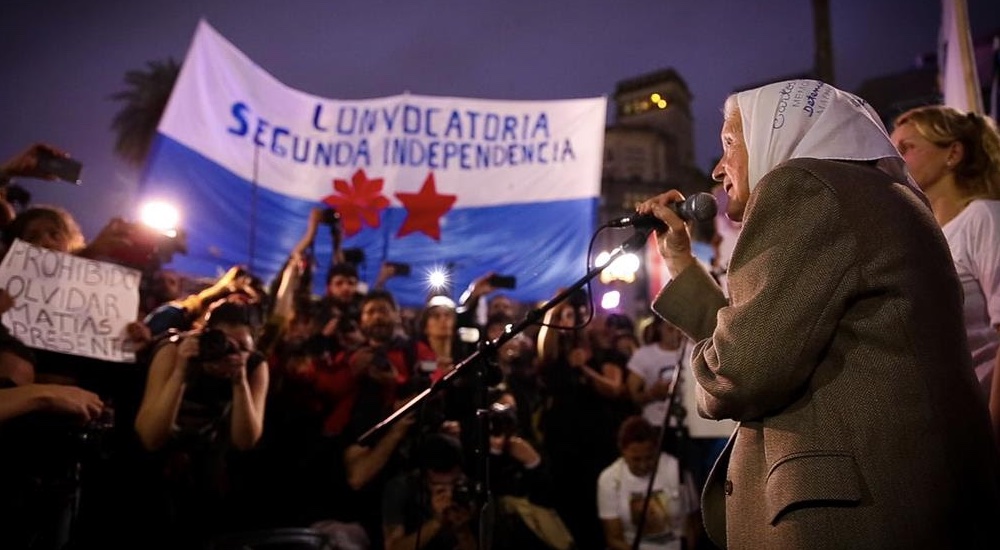No one could have predicted that quiet seamstress and mother Nora “Norita” Cortiñas would become an Argentinian feminist icon, least of all Nora herself. As her sister mentions at the beginning of the film, “She used to be a fearful woman, now she’s a lioness.”
Norita is a documentary that feels urgent. It looks to Argentina’s past and highlights the women who fought against the injustices of the military junta in the 1970s and 1980s. Many of these women, including Nora, are now in their 80s and 90s. Those direct links with the past are beginning to fade. Directors and writers Jayson McNamara and Andrea Tortonese excel at documenting history and treasuring the memories of one of the country’s icons, not only illustrating the fights won but also the fights that continue.
As we’re told via title card at the beginning, Argentina’s armed forces and police detained, tortured, murdered, or forcibly “disappeared” an estimated 30,000 people from the mid-1970s. Since the film is told from Nora's perspective, little time is devoted to the political intricacies of the time. What’s important for this story is that Nora’s eldest son Gustavo became extremely interested in politics and activism, directly in conflict with the military. Once the military took over in 1976, activists like Gustavo were kidnapped, leaving thousands of mothers like Nora with no answers to what happened to their children.
Devastated by his capture, Nora decides she must look for him, eventually joining other mothers doing the same and increasingly agitated as they get passed from police stations to government offices to churches with no answers. Exasperated, they began gathering in Buenos Aires’s Plaza de Mayo, turning their search into a full-fledged movement.
The documentary primarily uses archival footage and talking head interviews with Nora, her family, and her friends, as well as animated portions to tell the story of the “Madres de la Plaza de Mayo”. With Nora narrating, the story is compelling and one that remains unknown to many. Nora and the mothers took to the streets wearing white handkerchiefs, never relenting on getting their answers even as the military began to follow them, pressure them, and even kidnap some of them.
The film takes its story to the present day, where Nora is a national celebrity, recognized wherever she goes. Her unexpected life as an activist continues through her advocacy for legalizing abortion in Argentina, where proponents wear green handkerchiefs instead of white. As she walks through the crowds, the filmmakers capture the excitement around her and it’s clear she’s a role model to many generations.
Interestingly, the filmmakers and Nora don’t shy away from discussing the negative consequences of her activism — she openly reflects on how her one-track mind on Gustavo led to neglecting relationships with her husband and younger son. While these thoughts aren’t dwelled on, it’s clear that she recognizes the toll it has taken on her loved ones.
Norita is a love letter to and testimony of Nora and the Madres. It seems it has made it to screens just in time, as Nora Cortiñas passed away in May 2024 at the age of 94. Thankfully, her legacy lives on not just through the documentary, but through the generations of women she’s inspired.

